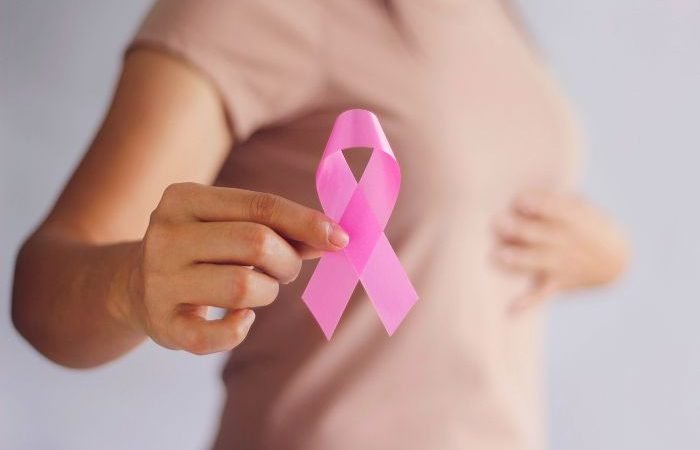Cryotherapy at Advanced Oncology Clinics
Cryotherapy, also known as cryosurgery or cryoablation, is a minimally invasive treatment that uses extreme cold to freeze and destroy cancer cells. This innovative approach is particularly effective for treating localized tumors and is often used as an alternative to more invasive surgical procedures. At Advanced Oncology Clinics, we offer cryotherapy as part of our comprehensive cancer treatment options, providing patients with a precise and less invasive way to target and eliminate cancerous tissues.

What is Cryotherapy?
Cryotherapy involves the application of extreme cold to destroy abnormal or diseased tissue, including cancer cells. This method can be used to treat a variety of cancers, particularly those that are localized and accessible.
During cryotherapy, a thin, hollow needle or probe is inserted into the tumor. Liquid nitrogen or argon gas is then used to create intense cold, which freezes and destroys the cancerous tissue. The freezing process causes the formation of ice crystals within the cells, leading to cell death.
Cryotherapy is often used to treat early-stage or localized cancers, such as prostate, liver, and kidney cancers. It is also used to target metastatic tumors that have spread to other parts of the body. Cryotherapy is particularly beneficial for patients who are not candidates for traditional surgery due to age, overall health, or the location of the tumor.
Cryotherapy offers several advantages over traditional surgery, including reduced risk of complications, quicker recovery times, and the ability to treat tumors that may be difficult to access with conventional surgical methods.
Conditions Treated with Cryotherapy
Cryotherapy is an effective treatment option for a variety of cancers, particularly those that are localized and can be easily accessed.
- Prostate Cancer: Cryotherapy is commonly used to treat early-stage prostate cancer, particularly in men who are not candidates for surgery or radiation therapy.
- Liver Cancer: For small, localized liver tumors, cryotherapy offers a precise method of treatment that can target the tumor without damaging surrounding healthy tissue.
- Kidney Cancer: Cryotherapy is also used to treat small kidney tumors, providing a minimally invasive option that preserves as much of the healthy kidney tissue as possible.
- Skin Cancer: Cryotherapy is effective for treating certain types of skin cancer, such as basal cell carcinoma and squamous cell carcinoma, by freezing and destroying the cancerous tissue.
- Bone Cancer: In cases where cancer has spread to the bones, cryotherapy can be used to relieve pain and prevent further damage to the bone.
Benefits of Cryotherapy
Cryotherapy offers several significant benefits, making it a valuable option for many cancer patients:
- Minimally Invasive: Cryotherapy is a minimally invasive procedure, which means it requires only small incisions or needle punctures. This reduces the risk of complications and shortens recovery time.
- Targeted Treatment: The precision of cryotherapy allows for the targeted destruction of cancer cells, minimizing damage to surrounding healthy tissues and reducing the risk of side effects.
- Quick Recovery: Most patients who undergo cryotherapy experience a quicker recovery compared to traditional surgery, often returning to normal activities within a few days.
- Effective for Inoperable Tumors: Cryotherapy is particularly beneficial for treating tumors that are difficult to access or for patients who cannot undergo traditional surgery due to other health concerns.
- Reduced Pain and Scarring: Because cryotherapy is less invasive than traditional surgery, patients typically experience less pain and scarring.
Managing Treatment with Cryotherapy
At Advanced Oncology Clinics, we provide comprehensive care and support for patients undergoing cryotherapy:
- Personalized Treatment Plans: Each patient’s cryotherapy treatment plan is tailored to their specific type of cancer, overall health, and treatment goals. We work closely with patients to develop a plan that balances effectiveness with quality of life.
- Monitoring and Care: During cryotherapy, imaging techniques such as ultrasound, CT, or MRI are used to guide the probe and monitor the freezing process, ensuring that the tumor is accurately targeted.
- Side Effect Management: While cryotherapy is generally well-tolerated, some patients may experience side effects such as mild pain, swelling, or bruising at the treatment site. Our team provides support to manage these side effects and ensure the patient’s comfort throughout treatment.
- Post-Treatment Follow-Up: Regular follow-up visits are essential to monitor the treatment’s effectiveness, assess any long-term side effects, and ensure that the cancer remains in remission.
FAQ
FAQs About Cryotherapy:
Cryotherapy is a minimally invasive treatment that uses extreme cold to freeze and destroy cancer cells. Learn more about cryotherapy.
Cryotherapy can be used to treat various cancers, including prostate, liver, kidney, skin, and bone cancers. Explore cancers treated with cryotherapy.
Benefits include minimally invasive treatment, targeted tumor destruction, quick recovery, effectiveness for inoperable tumors, and reduced pain and scarring. Learn about the benefits of cryotherapy.
Cryotherapy is a less invasive procedure that uses cold to destroy tumors, offering quicker recovery times and reduced side effects compared to traditional surgery. Understand the differences.
The process involves personalized treatment planning, precise targeting of the tumor, and monitoring during the procedure to ensure effective treatment. Learn about starting cryotherapy.
While cryotherapy is generally safe, it can cause mild side effects such as pain, swelling, or bruising. Our team works to minimize these risks. Understand the risks.
Yes, cryotherapy can be combined with other treatments, such as chemotherapy or radiation therapy, to enhance its effectiveness. Learn about combination treatments.
The duration of cryotherapy varies depending on the size and location of the tumor, with most procedures taking between 1 to 3 hours. Learn about treatment duration.
Recovery after cryotherapy is generally quick, with most patients able to return to normal activities within a few days. Learn about recovery.
You can schedule an appointment online or call us directly. Our team will assist you in setting up your consultation.

